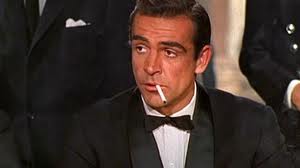This weekend I’ll be attending the local science fiction convention, Archon. I’ve only missed a couple of these since 1982, when Donna and I went to out very first SF convention, Archon 6. Stephen King was guest of honor and we got to meet many of the writers we’d been reading and enjoying, some, at least in my case, for many years. Until that year I hadn’t even known such things happened.
Science fiction for me was part of the fundamental bedrock of my life’s ambitions. Not just writing it or reading it, but in a very real sense living it. It is difficult to recapture that youthful, naïve enthusiasm for all that was the future. The vistas of spaceships, new cities, alien worlds all fed a growing æsthetic of the shapes and content of the world I wanted very much to live in.
 I’ve written before of some of the aspects of my childhood and adolescence that were not especially wonderful. My love of SF came out of that, certainly, but it was altogether more positive than merely a flight response from the crap of a less than comfortable present. I really thought, through a great deal of my life, that the world was heading to a better place. I found the informing templates and ideas of that world in science fiction, in the positivist philosophy underlying so much of it.
I’ve written before of some of the aspects of my childhood and adolescence that were not especially wonderful. My love of SF came out of that, certainly, but it was altogether more positive than merely a flight response from the crap of a less than comfortable present. I really thought, through a great deal of my life, that the world was heading to a better place. I found the informing templates and ideas of that world in science fiction, in the positivist philosophy underlying so much of it.
And I liked that world!
It was not a world driven by bigotry or senseless competition for competition’s sake. It was not a world where deprivation was acceptable because of innate fatalism or entrenched greed. It was not a world that lumped people into categories according to theories of race or economics that demanded subclasses.
 True, a great many of the novels and stories were about exactly those things, showing worlds where such attitudes and trends dominated. But they were always shown as examples of where not to go. You could read the paranoid bureaucratic nightmares of Philip K. Dick and know that he was telling us “Be careful, or it will turn out this way.” We could read the dystopias of a Ballard or an Aldiss and see them as warnings, as “if this goes on” parables.
True, a great many of the novels and stories were about exactly those things, showing worlds where such attitudes and trends dominated. But they were always shown as examples of where not to go. You could read the paranoid bureaucratic nightmares of Philip K. Dick and know that he was telling us “Be careful, or it will turn out this way.” We could read the dystopias of a Ballard or an Aldiss and see them as warnings, as “if this goes on” parables.
You could also read Ursula Le Guin and see the possibilities of alternative pathways. You could read Poul Anderson and see the magnificent civilization we might build. You could read Clarke and glean some idea of how people could become more than themselves.
You could see the future.
And what did that future offer? By the time I was eighteen I knew I wanted to live in a world in which we are all taken as who we are, humans beings, and nothing offered to one group was denied another just because. I recognized that men and women are equals, that our dreams and ambitions are not expanded or diminished by virtue of gender. I understood that building is always more important than tearing down. I discovered that Going There was vital and that the obstacles to it were minor, transitory things that sometimes we see as too big to surmount, but which are always surmountable.
Sure, these are lessons that are drawn from philosophy and science and ethics. You can get to them by many paths. I just happened to have gotten to them through science fiction.
I envisioned a world wherein people can engage and interact with each other fearlessly, without arbitrary barriers, and we can all be as much as we wish to be, in whatever way we wish to be it.
 So imagine my disappointment as I watch the world veer sharply in so many ways from that future. A world where people with no imagination, avaricious or power hungry, people of truncated and stunted souls are gaining ground and closing those doors.
So imagine my disappointment as I watch the world veer sharply in so many ways from that future. A world where people with no imagination, avaricious or power hungry, people of truncated and stunted souls are gaining ground and closing those doors.
There is a girl in Pakistan who may yet die. She’s 14 years old and she was shot by the Taliban because she dared to stand against them. She assumed her right to go to school, something the Taliban refuse to accept—females should not go to school—and rather than engage her ideas they shot her to silence her.
 In our own country we have men in places of power who think women shouldn’t have the right to control their own bodies, others who opine that maybe slavery wasn’t so bad after all, others who deny the legitimacy of science because it contradicts their wishes and prejudices.
In our own country we have men in places of power who think women shouldn’t have the right to control their own bodies, others who opine that maybe slavery wasn’t so bad after all, others who deny the legitimacy of science because it contradicts their wishes and prejudices.
This is not the world I imagined. Why would any sane person deny anyone the right to an education? How could the community around this girl even tacitly support this idea? This is so utterly alien to me that it is incomprehensible. This is evil. This is not the world of tomorrow, but some kind of limpet world, hermetically sealed inside its own seething ignorance that, like a tumor, threatens everything that I, for one, believe is worth while.
So I write. I write stories and I write this blog and I write reviews and I write and I talk and I argue. It is disheartening to me how many people use their ignorance as a barrier to possibility, to change, to hope. I can’t help sometimes but think that they would have benefited in their childhood from more science fiction.
I still have hope. It still comes from the source well of my childhood imagination, that we can build a better world. If that’s naïve, well, so be it. Harsh reality, unmitigated by dreams of beauty and wonder, makes brutes of us all.
See you at Archon?



